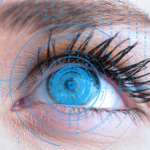Opt For Inclusive Care at the Doorstep
Proper home health care can be given by certified and dedicated home health care services by providing at home nurses. They can offer a professional yet compassionate helping hand to sick and elderly persons at home, ensuring the optimal well-being of your loved ones. In this busy modern schedule often, it is unfeasible to take care of an ill person at your home. Nursing care at home is the best possible solution for inclusive care of an individual that encompasses the well-being of the patient at the doorstep, ensuring the convenience of the patient.
A Wide Array of Services
Professional nurses provide a wide array of services, including proper health assessment of the patient, dressing, abrasion care, medication, and collecting samples for laboratory tests. Nursing personnel can administer IVs and carry out the treatment schedule as directed by the physician. They adhere to strict hand hygiene guidelines while collecting blood specimens ensuring no nerve injury and unusual shooting pain. Nurses use safety devices and follow blood-borne pathogen standards that minimize the threat of blood-borne pathogens. In Venipuncture, the nurse exercises the right pressure at the syringe plunger to draw the correct amount of blood from the patient for a clinical test.
Anti-Coagulation Therapy
Nurses perform anti-coagulation therapy to prevent blood clots in patients vulnerable to a blood clot causing life-threatening conditions such as heart attacks and strokes. Blood clot stops the flowing blood from a wound. They are helpful in impeding bleeding but can also obstruct blood vessels and circulation to organs like the brain and heart if occurs in the wrong places. Anticoagulation treatment is intended to prevent excess blood clotting. The nurses can assess the situation when the patient is at risk of a blood clot, especially after surgery when the patient is at rest and has immobility. Nurses administer the prescribed amount of anticoagulant medicine at a specific time if needed.
Cardiac Nurses
Cardiologists refer to cardiac nurses who take care of patients with a chronic and acute heart ailments. The nurses monitor and evaluate heart conditions and may use tools like defibrillators if necessary. Cardiac care nursing has become an integral part of heart disease treatment for an aging population. Cardiac nurses have comprehensive knowledge of modern therapies and treatments related to heart disease. In addition to fundamental care, communiqué skill, and emphatic manner, they are well acquainted with cardiac medication, common cardiac issues, telemetry, heart rhythm, cardiac-related assessment, and labs related to cardiology. Cardiac nurses are a part of the healthcare team that provides cardiac treatment to patients.
Helping Diabetic Patients
One out of eleven persons, around 4630 million people, are suffering from diabetes the world over; nurses plays a pivotal role in managing their conditions and making them aware of this disease. People with type II diabetes or on the brink of it may avert life-changing conditions like loss of sight, stroke, and heart attack with the help of certified nurses. They provide essential support to people suffering from diabetes; they administer not only life-saving medication like insulin but also offer psychological advice on how to tackle enduring chronic health conditions.
They offer indispensable dietary and lifestyle advice to people susceptible to type 2 diabetes to reduce the potential risks.












